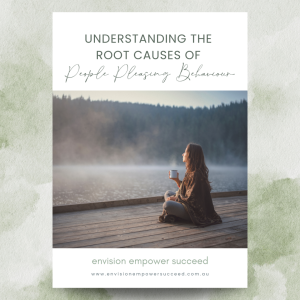In a world that often rewards agreeableness and cooperation, the line between being accommodating and being a people pleaser can sometimes blur. While it’s natural to want to keep those around us happy, crossing into people-pleasing territory can lead to neglecting our own needs and desires. Recognizing the signs of people-pleasing behaviour is the first step towards establishing healthier boundaries and fostering more authentic relationships. Here are some telltale signs that you might be a people pleaser:
You Struggle to Say No
One of the most obvious signs of a people pleaser is difficulty in saying no. If you find yourself taking on more than you can handle, out of fear of disappointing others or facing conflict, you might be prioritizing others’ needs and comfort over your own.
You Feel Responsible for How Others Feel
People pleasers often take on the emotional burden of ensuring everyone around them is happy. If you feel personally responsible for the emotions and reactions of others, it might be a sign that you’re overextending your empathy.
You Apologise Excessively
Frequent apologies, especially when you haven’t done anything wrong, can be a sign of people-pleasing behavior. This often stems from a fear of being disliked or causing any form of discomfort to others.
You Avoid Conflict at All Costs
While nobody enjoys conflict, actively avoiding it—even when it means compromising your own values or comfort—can indicate a tendency towards people-pleasing. This avoidance can prevent you from addressing important issues or standing up for yourself.
You Struggle with Making Decisions
People pleasers often find it challenging to make decisions, especially if they believe their choice might not sit well with someone else. This indecisiveness is rooted in a fear of criticism or not meeting others’ expectations.
Your Self-Worth is Tied to Others’ Approval
If your sense of self-worth heavily relies on the approval and validation of others, you might be in the territory of people-pleasing. This can lead to a constant search for validation, often at the expense of your own identity and happiness.
You Change Your Opinions to Match Others
Do you find yourself frequently agreeing with others, even when you have a different opinion? People pleasers often morph their views to avoid confrontation or to be liked, which can stifle genuine self-expression.
You Go to Great Lengths to Avoid Letting People Down
Whether it’s overcommitting, bending over backward to accommodate requests, or sacrificing your own needs, going to extreme lengths to not disappoint others is a hallmark of people-pleasing behaviour.
Recognizing these signs in yourself is the first step towards change. The journey away from people-pleasing involves setting boundaries, learning to prioritize your needs, and understanding that it’s impossible to please everyone. By fostering a sense of self-worth that is independent of others’ opinions and learning to say no, you can begin to establish healthier relationships that respect both your needs and the needs of others. Remember, it’s not about becoming selfish but about finding a balanced way of interacting with the world that honours your authenticity.








